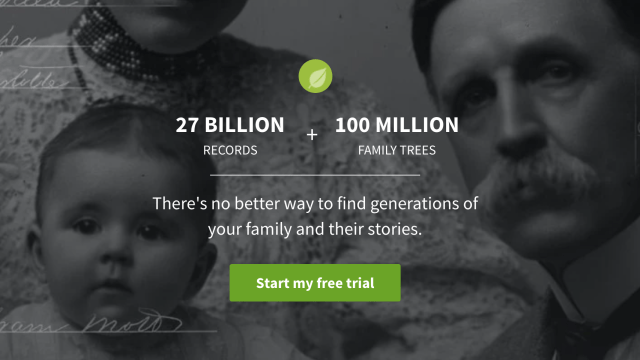The Blackstone-owned genealogy giant Ancestry.com raised a ton of red flags earlier this month with an update to its terms and conditions that give the company a bit more power over your family photos. From here on out, the August 3 update reads, Ancestry can use these pics for any reason, at any time, forever.
If you’ve never used Ancestry.com before, one of the site’s biggest draws is its database of public and private family trees that are curated by the site’s millions of members. As of this writing, there are close to 2 billion of these trees available for public perusing, and many of these either have photos of family members or pics of certain public records tacked on — think birth certificates, census records, or marriage licenses.
By uploading any of these documents, Ancestry states, the company’s new ToS clarifies that you grant it the right to do… pretty much anything with the uploads. More specifically:
By submitting User Provided Content through any of the Services, you grant Ancestry a perpetual, sublicensable, worldwide, non-revocable, royalty-free licence to host, store, copy, publish, distribute, provide access to, create derivative works of, and otherwise use such User Provided Content to the extent and in the form or context we deem appropriate on or through any media or medium and with any technology or devices now known or hereafter developed or discovered. This includes the right for Ancestry to copy, display, and index your User Provided Content. Ancestry will own the indexes it creates.
Naturally, not too many Ancestry users were too keen on the idea of signing away any legal rights to family pictures and historical documents. A few days later, the company issued a follow-up blog in an attempt to assuage some of these concerns.
“This change to the Ancestry Terms and Conditions is consistent with the manner in which other genealogy research platforms handle user-provided content,” the company wrote in the August 6 post. “It was never intended to enable Ancestry to do anything with our users’ content other than facilitate a vibrant family history community that brings the value of personal discoveries to all.”
The company also noted that it added a helpful clause to clarify that, yes, deleting your documents from Ancestry’s site would also remove any rights Ancestry holds over them. But there’s a catch: if any other Ancestry users copied or saved your content, then Ancestry still holds those rights until these other users delete your documents, too.
These new terms go into effect on September 2nd. If you’re using the site and want to keep the rights to those beloved family photos, it might be best to take them down ASAP.
